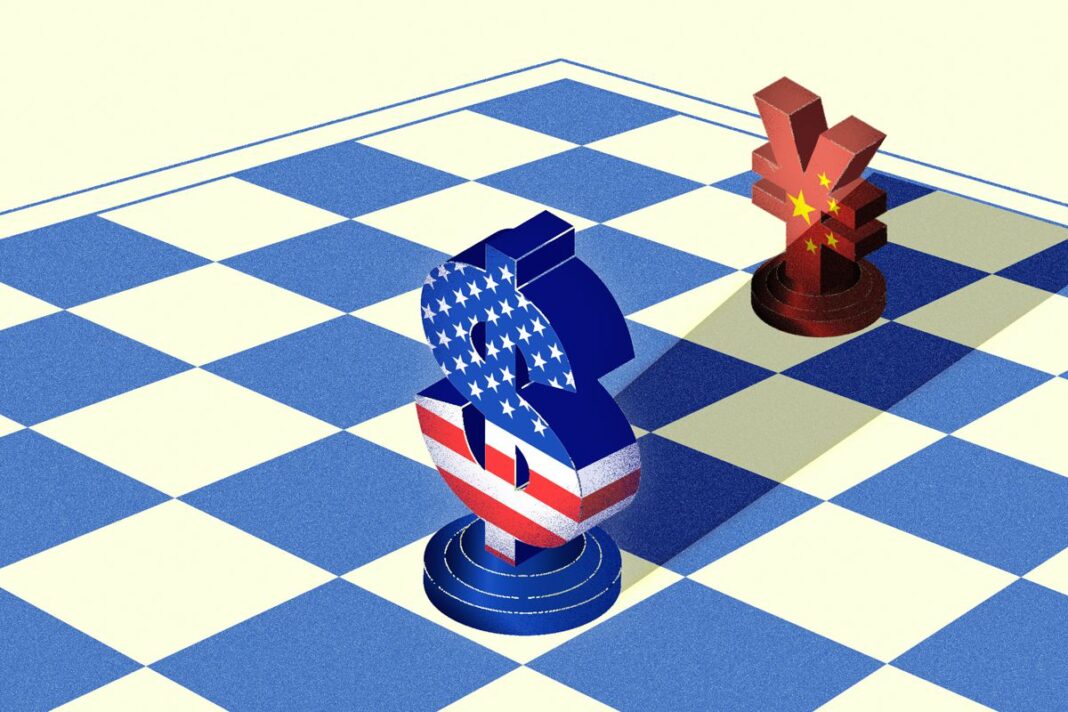As the world’s reserve currency and primary medium for financial transactions, the U.S. dollar is the linchpin of the U.S.-led global order.
The U.S.–China trade war may be transitioning to a monetary standoff.
As U.S. President Donald Trump’s tariff policies kickstart a reshuffling of global supply chains and trade, Beijing is looking to another battleground: the Chinese yuan versus the U.S. dollar.
Last month, Pan Gongsheng, head of China’s central bank, reiterated the regime’s interest in promoting the internationalization of the yuan, also known as the renminbi, at the Lujiazui Forum, a leading economic forum in Shanghai.
The dominance of currencies, especially in the digital world, will be the next focus of the U.S.–China trade war, according to Mike Sun, a U.S.-based businessman with decades of experience advising foreign investors and traders doing business in China. He uses an alias to avoid reprisals from the Chinese regime.
William Lee, chief economist at the Milken Institute, concurred.
Lee told The Epoch Times that the fear of sanctions has spurred the regime to try to expand the use of the yuan in an alternative cross-border payment system. Now, China is concerned about potential sanctions before its digital currencies can gain traction and become more widely adopted, he said.
The concerns that Lee mentioned are front and center for policymakers in Beijing.
In a June speech in Shanghai, China’s central banker expressed concerns that the “traditional cross-border payment infrastructures can be easily politicized, weaponized, and used as unilateral sanction instruments” as the geopolitical tension escalates.
Another prominent chief economist in China, Lian Ping, wrote in late May, “Financial sanctions and countermeasures will probably become a battlefield of U.S.–China competition in the next phase.”
These economists are not just scholars, but a well-connected brain trust of senior Chinese Communist Party (CCP) officials, Sun told The Epoch Times. Hence, these experts don’t make recommendations; they foreshadow and interpret the regime’s actions.
Lian also warned that the United States might start imposing sanctions on a few Chinese entities, then expand the scope, eventually excluding China from the U.S. dollar-based system.
As the world’s reserve currency and primary medium for financial transactions, the U.S. dollar is the linchpin of the U.S.-led global order.
By exporting commodities to China and then buying electric vehicles from China, the member countries of BRICS can form an alternative trading system denominated in yuan, according to Lee.
By Terri Wu








